What You Need To Know About Diabetes – 9 Facts About Diabetes You May Not Know (#9 Will Surprise You)
8 Facts About Diabetes You May Not Know
Overview
Diabetes is a complicated condition that causes your blood sugar levels to remain abnormally high. It is the leading cause of kidney failure and limb amputations in the US. Over 37 million Americans are currently living with this chronic condition, and another 96 million are at a high risk of developing it.
While diabetes cannot be completely cured, it can be controlled and managed with the right planning and approach. Understanding some basic facts about diabetes will help you take charge of your health and achieve better control over your condition.
8 facts you should know about diabetes
1. Diabetes is a metabolic disease.

Since our organs function within a specific range of blood sugar, the body is naturally designed to keep its levels constant. Your pancreas continuously monitors your sugar levels going up and down and takes action accordingly. As your blood glucose rises after meals, beta cells in the pancreas release insulin—a hormone that helps to move glucose from your blood into cells and muscles, which can then be used for energy and storage. When your blood glucose drops, alpha cells in your pancreas release another hormone called glucagon, which signals the liver to release stored glucose back into the bloodstream.
In persons with diabetes, either the pancreas doesn’t make enough insulin or cells do not respond well to this hormone. As a result, glucose cannot be utilized for energy but rather stays in the bloodstream. If left unchecked for a long time, this can cause serious damage to the eyes, kidneys, nerves, heart, and other organs.
2. People with diabetes can lead a perfectly healthy life.
Diabetes is something you need to live with all your life. But it is possible to control blood sugar levels and prevent serious complications. Healthy lifestyle changes like balanced nutrition, cutting down on added sugar and artificial sweeteners, getting physically active, reducing alcohol consumption, and losing excess weight can help improve quality of life.
Timely medical advice, regular checkups, monitoring sugar levels, and proper medications are also crucial in diabetes management. It is important to understand that diabetes slowly progresses with time, which means lifestyle measures that initially worked may not be sufficient later in life. After some time, you may need to take medicines or insulin to maintain normal glucose levels. But proper diet and lifestyle are still vital for preventing inflammation and other chronic conditions.
3. Diabetes can be of three types.
Depending on disease progression and origin, experts have identified two major types of diabetes.
· Type 1 diabetes: The body is incapable of making insulin.
The exact cause of type-1 diabetes is not well-known. It is believed to be an autoimmune response that prevents the pancreas from making insulin. It occurs when the body’s immune system starts attacking and destroying insulin-producing beta cells. People with this condition need to take daily insulin shots, along with proper diet and exercise. Type-1 diabetes usually develops in childhood or adolescence but can also be diagnosed in adults. Family history and some viral infections are thought to play a role in its development.
· Type 2 diabetes: The body is resistant to insulin.
In this condition, the pancreas produces insulin, but your cells and muscles cannot use it effectively to absorb glucose from the bloodstream. Initially, the pancreas reacts by increasing the production of insulin. But as glucose in your blood builds up and triggers inflammation, it cannot keep working efficiently. The majority of Type-2 diabetes conditions and complications are caused by the condition known as insulin resistance.
Type-2 diabetes develops over many years, and your body’s ability to regulate sugar levels decreases with time. It can be caused by a combination of various lifestyle factors, such as unhealthy eating habits, obesity, inflammation, lack of physical activity, and environmental factors. Genetics is also known to have a strong role in its development. Symptoms of type-2 diabetes can be hard to spot at first, and it may go undiagnosed for years.
There is also a third type of diabetes, which is not chronic but can have long-term complications.
· Gestational diabetes
Some women who have never been diagnosed with diabetes may develop this condition during pregnancy. Your placenta—the organ that provides nutrients and oxygen to your baby—releases several hormones that may block or suppress insulin. Usually, the pancreas can handle this by increasing insulin production. But sometimes, the body may not produce enough insulin or cannot use it effectively, causing sugar levels to rise.
Gestational diabetes affects about 10% of pregnancies in the US each year. It usually goes away on its own when the pregnancy ends. But if not controlled early on, it can affect your and your baby’s health during pregnancy. It may also increase your risk of developing type-2 diabetes later in life.
4. Diabetes affects more than just blood sugar.
Having high blood sugar affects every single organ in your body and puts your system under stress. If not managed well, diabetes can contribute to inflammation and cause a variety of mild to severe health problems. Living with uncontrolled type-2 diabetes for a long time is known to increase your risk of heart disease, hypertension, stroke, kidney disease, liver disease, retinopathy, nerve damage, and cancer.
High blood sugar can also degrade your overall quality of life in various other ways. It may mean you have to frequently deal with seasonal infections and allergies, fungal skin problems, slow wound healing, low energy levels, mental fatigue, blurry vision, urinary tract infections, and muscle weakness.
5. More than 95% of diabetes cases are preventable.
Type-2 diabetes, which accounts for over 95% of all diagnosed cases of diabetes, is a preventable disease. Prediabetes refers to a condition when your blood sugar levels are slightly higher than normal but not high enough to classify as type-2 diabetes. It can cause symptoms like blurry vision, increased thirst and hunger, fatigue, numbness or tingling in limbs, and slow-healing sores and wounds.
If left untreated in this stage, it may develop into full-blown type-2 diabetes in the next few years. Type-2 diabetes can be prevented if prediabetes is diagnosed and reversed in time. According to the Centers for Disease Control and Prevention data, over a third of American adults have prediabetes, and 8 in 10 of them do not know about it.
6. Sugar is not the primary cause of diabetes.
Excess consumption of sugary foods and drinks can lead to weight gain, which can increase your risk of developing type-2 diabetes. However, sugar consumption is not the sole factor in diabetes progression. Various other factors play a role, such as eating a diet high in refined carbs and trans fats, not getting enough fiber, eating at irregular intervals, eating close to bedtime, emotional eating, snacking on packaged foods, high levels of stress, little to no physical exercise, chronic inflammation, and even nutritional deficiencies.
Being diagnosed with diabetes does not mean you have to give up on everything sweet. In fact, people with controlled diabetes can enjoy sweet delicacies once in a while. The key is to keep the portion size small and use natural sweeteners whenever possible.
7. Replacing sugar with artificial sweeteners is not a solution.
If you think merely replacing sugar in your candies, cakes, cookies, and sodas with artificial sweeteners can make these foods “diabetes-friendly,” think again! Evidence shows that regular consumption of artificial sweeteners can harm friendly gut bacteria, promote weight gain and appetite, increase insulin resistance, and make you crave sweet foods even more than usual.
High consumption of artificial sweeteners has been found to increase the risk of type-2 diabetes in persons with prediabetes and high-risk groups. More importantly, these types of quick foods are high in carbs and have low nutritional value.
8. Diabetes and dementia are related.
Evidence shows a staggering connection between type-2 diabetes and dementia. People living with type-2 diabetes are about 60% more likely to develop Alzheimer’s disease or other types of dementia. In fact, many people think that Alzheimer’s disease should be called “diabetes of the brain” or “type-3 diabetes,” as it is directly caused by insulin resistance.
Insulin resistance and high blood sugar can cause chemical imbalances in your brain and contribute to the formation of amyloid-beta plaques. It also increases inflammation, which can directly damage brain cells and impair cognitive health.
Interestingly, reducing your risk of diabetes also lowers your risk of dementia, and both diseases can be prevented through similar lifestyle measures.
9. Diabetes (prediabetes, Type-2 Diabetes) can be reversed
Type-1 diabetes cannot be reversed (as far as we know today) because it is an irreversible autoimmune. This condition attacks beta cells in your pancreas by reducing insulin production and makes it hard to control blood sugar levels, as mentioned above.
Because prediabetes and type-2 diabetes are largely a result of insulin resistance, there is evidence indicating that it can be reversed with your diet. According to Dr. Ken D. Berry, MD (you can watch his videos on YouTube), prediabetes and type-2 diabetes can be reversed by following five simple steps. This is the same process that he used to reverse his type-2 diabetes. Here are the five steps (This is not medical advice. Please consult doctor before attempting any of these recommendations):
- Eliminate ALL sugar from your diet – Stop eating all added and natural sugars. Added sugar in particular is not food but toxin added to food during manufacturing process and spikes your blood sugar.
- Stop ALL Grains – the most common grains that contribute to chronic diabetes are corn, wheat, oath, and rise, but essentially all grains are broken down into sugars the moment they enter the mouth. The amylase in your saliva breaks down th carbohydrates in your grain into sugars by the time it reaches your stomach.
- Stop ALL vegetable oils (also known Seed Oils) – this includes canola oils, soybean oil, sunflower oil, safflower oil, peanut oil, corn oil, cottonseed oil, etc. which are all inflammatory in your body because of their very high omega-6 content. These oils oxides very rapidly in your body and are said to have the pathophysiology that ultimately leads type-2 diabetes.
- Eat LOTS of Fatty Meat – Fat and protein don’t raise your blood sugar or insulin at a meaningful level, so they can be consumed in high amounts to take advantage of the vitamins and minerals.
- Get carbs from VEGETABLES only – You will want to eat vegetables that are above the ground and avoid all starchy veggies. You will have to watch how much you consume because the amount you consume varies from person to person.
The above steps may seem like torture right now but following this plan can help you reverse your diabetes within one to six months depending on your ability to consumer less carbs. It is important to have your doctor do the following blood tests to help you monitor your progress – Fasting Glucose, HbA1c, C-Peptide, and Fasting Insulin.
- Intermittent Fasting – intermittent fasting gives your body a natural way to recycle itself in a process called autophagy. Studies have shown that regular intermittent fasting can lead to weight loss, reduced insulin resistance and better cardiovascular and liver health among others. You can read more about intermittent fasting here. You can also take a look at my books on the topic: Heal Your Body, Heal Your Life: Discover Simple Strategies for Healing the Body with Intermittent Fasting and Nutrition and Keto Diet and Intermittent Fasting Success: Discover the Simple Steps to Cleanse the Body of Toxins, Balance Hormones, and promote Weight Loss.
- Daily Movement – when combined with the dietary changes mentioned above, daily movement (exercise, walking, dancing, jumping, sex with your spouse, etc. – anything that makes you sweat and use your muscles) helps your body burn fat and glucose, reducing the amount in your bloodstream. You can do this!
What happens if you don’t REVERSE Diabetes?
If left unmanaged and unreversed, diabetes leads numerous health problems including, but not limited to weight gain, chronick kidney disease, (CKD) never damage (neuropathy), blindness (retinopathy), cancer, coronary artery disease, high cholesterol, fatty liver disease, Alzheimer’s disease, high blood pressure, and many more. If reversed, many of these complications simply go away. Those with diabetes owe to themselves to reverse this condition. We may not have all the answers, but I strongly believe THERE ARE NO INCURABLE DISEASES! You can do this!
Final thoughts
Diabetes is a condition that affects your body’s ability to use glucose from foods as fuel. If you or your loved ones have been diagnosed with diabetes, please know that living with this condition can be a perfectly healthy and productive journey, but you also have the option to reverse it and return to your most optimal health. Almost all serious diabetes-related complications are either preventable or can be managed with proper nutrition and exercise or can be reversed.
Along with regular monitoring and medical advice, people with diabetes need to eat nutrient-dense foods like whole grains, lean proteins, fiber-rich fruits and vegetables, omega-3 fats, prebiotics, and foods rich in plant antioxidants. Taking nutritional and herbal supplements may also help.
Remember, Do Something Everyday That Heal Your Body!
To Your Health!
References
https://www.cdc.gov/diabetes/basics/quick-facts.html
https://www.niddk.nih.gov/health-information/diabetes/overview/what-is-diabetes/type-2-diabetes
https://www.frontiersin.org/articles/10.3389/fcdhc.2020.546256/full
https://www.ncbi.nlm.nih.gov/books/NBK26882/
https://www.ncbi.nlm.nih.gov/pmc/articles/PMC7246646/
https://www.ncbi.nlm.nih.gov/pmc/articles/PMC6209735/
https://www.frontiersin.org/articles/10.3389/fnins.2018.00383/full
Ken Berry, MD – Proper Human Diet | drberry.com

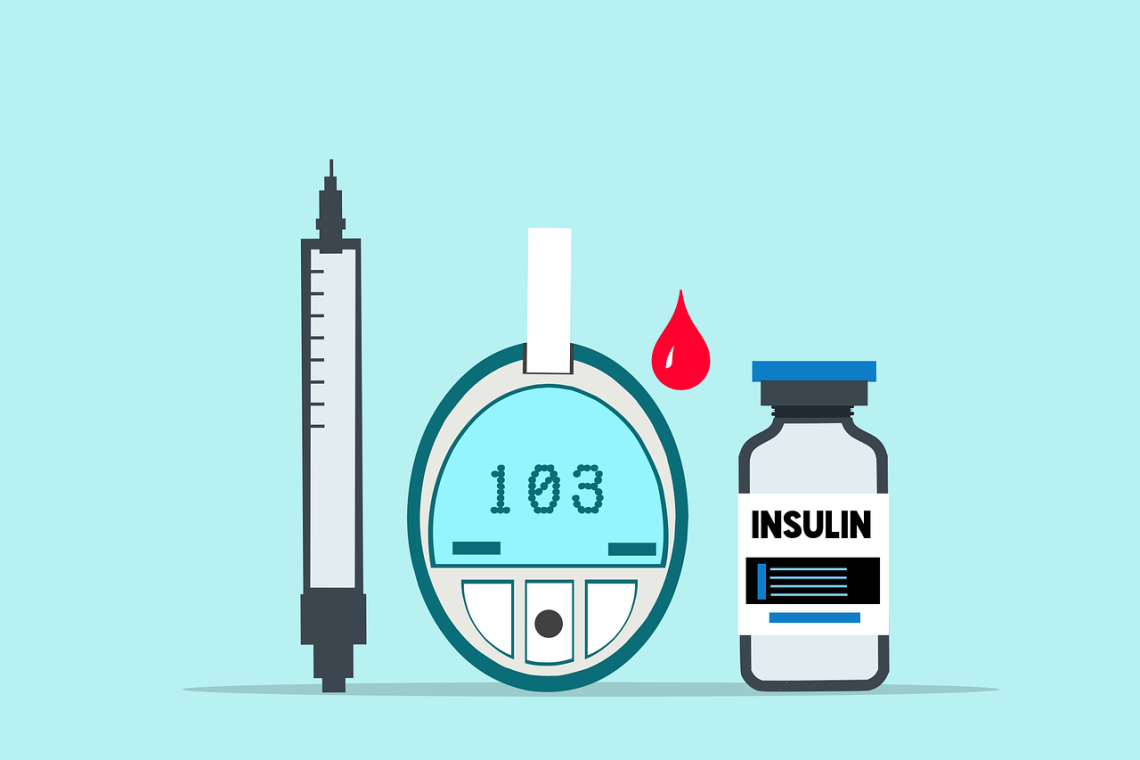

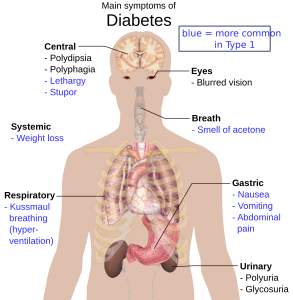



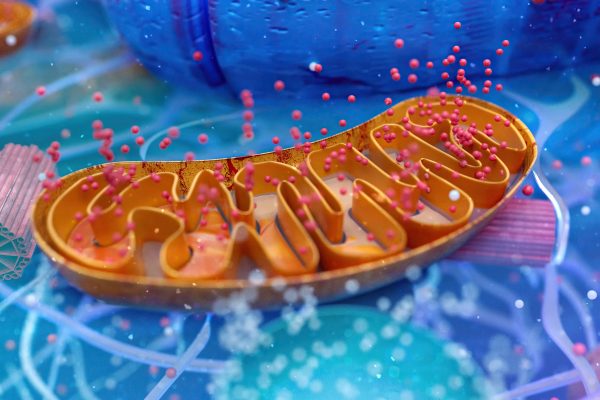


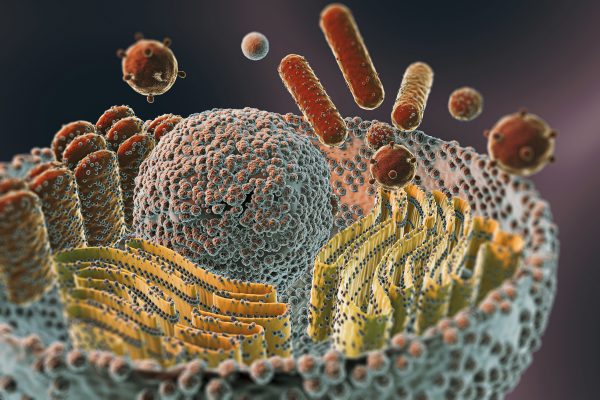
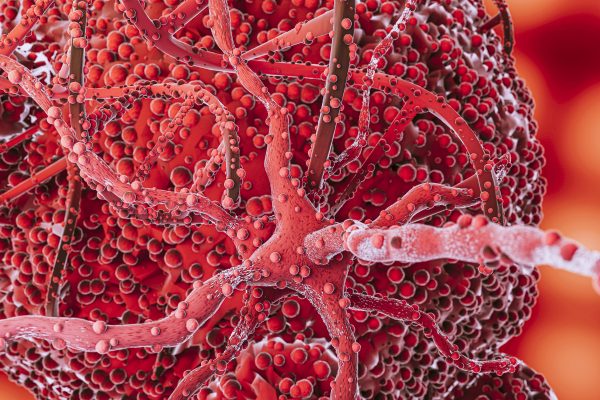


















2 Comments
[…] Insulin resistance develops when your cells become less responsive to insulin, leading to high blood sugar levels. While genetics play a role, lifestyle factors such as diet, exercise, and weight management are key in its development. Understanding these factors can help you make healthier choices to reduce your risk of insulin resistance and related health issues. […]
[…] black and green teas are well-known to improve blood sugar control and reduce the risk of type-2 diabetes. There is some evidence that suggests kombucha may be even more beneficial in diabetes management […]